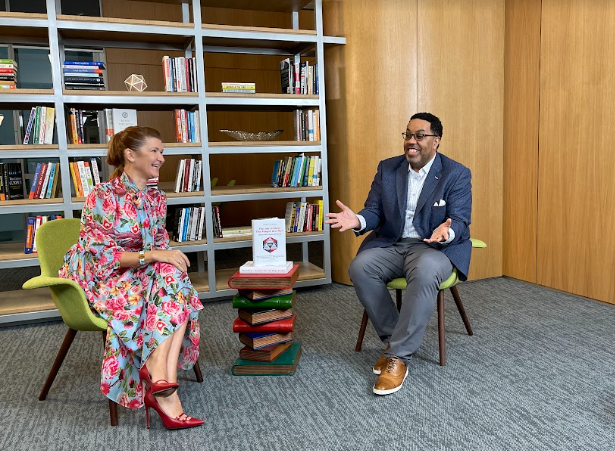The Job Is Easy, The People Are Not! Podcast Series
Watch on YOUTUBE
Listen now on SPOTIFY
Listen now on APPLE PODCAST
Ep. 2 - Managing Up with Dr. Sean O. Ferguson now on YOUTUBE
Managing up is the ability and capacity to anticipate and solve problems that your stakeholders need solved.
Managing up goes beyond managing your boss and smart leaders know how to bring out the best in their employees, suppliers, and overall stakeholders to achieve higher success.
Emotional maturity is the ability to understand, manage, and control our emotions and those of others in professional and personal settings to prevent painful, uncomfortable and unnecessary emotional outbursts caused by stress, tension, and conflict.
Smart, emotionally mature leaders are both empathetic and rational, and are sought after by their peers as valuable members of their organizations.
Ep. 1 - Emotional Maturity with Prof. Roberto Fernandez now on YOUTUBE
Ep. 4 - Adaptability with Emily Preiss now on YOUTUBE
Ep. 3 - Validation with Prof. Loredana Padurean now on YOUTUBE
Validation is the ability to provide evidence-based recognition or affirmation that a person (including ourselves), their feelings, opinions, and / or actions are valid and worthwhile.
Smart validating leaders are more likely to have higher relationship productivity and support their teams effectively but they will also be able to recognize and manage validation addicts and their constant need for recognition.
Ep. 6 - Followership with Dr. Hadija Mohd
Ep. 5 - Productive Inclusion with Prof. Yi-Ren Wang now on YOUTUBE
Ep. 7 - Multiple Perspectives with Michele Sagan, Sangeeta M. Matu, Aline Pasang, and Yvonne Tang
Multiple perspectives is the ability to understand multiple and possibly heterogeneous viewpoints, representations, and roles in an organization and beyond. The MIT Sloan Organizational Behavior group identified three perspectives: the political, cultural, and strategic as critical to management success.
Smart leaders know how to recognize and encourage the development of multiple perspectives in organization.
Ep. 8 - Humility with Prof. Renato Lima-de-Oliveira
Humility is the ability to realize that the more I learn, the less I know. Organizational humility is a critical skill that companies should invest in to avoid strategic blindness that eventually drives to failure.
Smart humble leaders know that they are seated on the shoulders of their organizations and validate the efforts made by others and before them.
Ep. 9 - Listening with Jin Sohn
The ability to focus completely on someone who is speaking, understand their message, comprehend the information, and respond thoughtfully.
Smart leaders know that listening is not just hearing, but it's an active skill of taking notice, acting, and reacting that provides smart leaders with rich knowledge and insights on their organizations.
Listen now on SPOTIFY
Ep. 10 - Cognitive Readiness with Prof. Charles Fine
Cognitive readiness is the mental preparation (including skills, knowledge, abilities, motivations, and personal disposition) that a person needs to establish and sustain competent performance in our complex and unpredictable environment.
Smart cognitively-ready leaders invest constantly in knowledge, skills, and attributes that give them the tools to respond to constant disruption.









